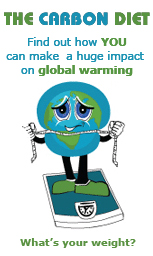Ask Ronit
 I Like Your Ponytail, A Story About Commitment
I Like Your Ponytail, A Story About Commitment
“I like your ponytail.” I said in a playful manner. “Ponytail?” he repeated in a thick French accent. There and then began the most extraordinary odyssey of my life.…
Avoid 90% of the Pesticides in Food, by Avoiding 12 Foods
Why should you care about pesticides in your food?For starters there may be as many as twenty pesticides on a single piece of fruit you eat.…
Dear Mrs. Black,It was January 1967 when this 11 year-old, frightened, little Israeli girl walked into your classroom for the first time. I had only arrived in the country two weeks before.…
With sex all around us, oozing out of our televisions, theaters, magazines, fashion, on the streets, one would think we are the most sexually informed, open and comfortable nation on the planet.”…
I’m sure by now you all have noticed the ongoing meltdown in the mortgage industry. The cause of this whole mess is a little bit complicated, rooted in both the structure of the mortgage industry, and human nature. I’ll try to explain both factors here in layman’s terms.…
Breaking old habits; Creating new Ones
We are mostly habitual beings. Webster defines habit as an acquired mode of behavior that has become nearly or completely involuntary.…
Navigation
News And Events
Warmer Pacific waters invaded by large squid
By reli4nt
A sixteen year study has revealed an invasion in the North Eastern Pacific of large aggresive squid. The pack hunting predators are 2 meter Humbolt squid (Dosidicus gigas). The previously rarely seen squid were previous spotted in conjunction with El Nino weather events but they always retreated to their regular territories when the warming events ended.
The squid are credited with the drop in the populations of several commercial fish including hake, and anchovies. Their recent expansion into a new range coincides with both climate related changes in ocean temperatures, and with the reduction of tuna. The Tuna both compete for food with the squid and also feed on young squid. read more »
Green computers are making a difference
By reli4nt
The Green Electronics Council released its first report estimating the benefits of purchasing desktops, laptops and monitors registered by its EPEAT database. EPEAT (Electronic Product Environmental Assessment Tool) is an online tool which allows organizations to compare and select computers based on their environmental attributes. EPEAT ranks qualifying products in three tiers, Bronze, Silver or Gold with the lowest meeting all requirements and the strictest (Gold) meeting 75% or more optional criteria.: read more »
Business 2.0's 101 Dumbest Moments in Business
Business 2.0 resleased it's seventh annual list of business blunders, gaffs, and embarrasing moments. The top ten "winners" included Wal-Mart for it's Candidate Wal-Mart marketing campaign, Comcast for the viral video of a repairman who fell alseep on the couch at a customers house, Radioshack for firing 400 of its staff by email, and H.R. hargreaves & Son which, as part of a prank, shipped packages of cooked ham listing "dog sh*t" among the ingredients. read more »
Organic farming could feed the hungry
By reli4nt
My hope is that we can finally put a nail in the coffin of the idea that you can’t produce enough food through organic agriculture
-- co-author Ivette Perfecto
A three year study from the University of Michigan concluded that organic farming could yield as much as three times as much food for developing countries without putting additional farmland into production.
This finding refutes the widely held belief that organic practices would be detrimental to farming in developing nations. Organic farming would not only be more profitable and productive, but also more cost-effective, sustainable, and more ecologically friendly. read more »
Humans' affect on global rains confirmed
By reli4nt
Researchers have confirmed that human activities have affected the distribution of global rain patterns resulting in the drying of areas such as India and sub-Saharan Africa while Canada, parts of Russia and parts of Europe have seen an increase in rainfall. The results will be published in the journal Nature on Thursday.
There have been suggestions and debate regarding the nature of changes in weather patterns and whether or not human activity is to blame. Natural factors as well as the consumption of fossil fuels and other other human activities are know to influence the atmosphere. Proponents argue the changes are part of the planet's continually shifting climate patterns. read more »
Democrats debate user's video questions
By reli4nt
In a first for the American presidential debate, eight Democratic candidates answered questions from users. The questions were selected by CNN from almost 3000 submissions via YouTube. the questions differed from traditional debates. One question aimed at Clinton asked "how would you define the word 'liberal?' And would you use this word to describe yourself?" A broadly directed question later asked "All of you say you will be able to work with Republicans. Well, here's a test. If you had to pick any Republican member of Congress or Republican governor to be your running mate, who would it be?" read more »
Intel Joins 'One Laptop Per Child' board
By reli4nt
After its chairman, Craig Barrett previously made negative comments about it, Intel has decided to join up with the One Laptop Per Child (OLPC) project. Craig Barrett called the laptops a "gadget". The new partners announced that Intel will join the non-profit's board and contribute funding for the program.
The project is also referred to as the $100 laptop program, in reference to the intended cost of the items . Currently the actual cost remains $175 USD. The laptops are intended for distribution to children in poor and developing countries. read more »
EU begins enforcing long delayed recycling law
By BBC News
The EU has now put into force an electronics recycling law that was originally slated to be enforced 2 years ago. The Waste Wlectrical and Electronic Equipment (WEEE) requires 4kg (lbs) of electonic waste to be recycled per person. The newly enforeced law shares responsibility for recycling at all point along the consumer spectrum. For starters, manufacturers of electronics are responsible for funding the recycling efforts and retailers are equired to accept the waste from customers. read more »
Google Joins Intel and Others in Green Initiative Launch
Google Inc. joined with Intel, Dell, EDS, the Environmental Protection Agency (EPA), and many other organizations tannouncing the Climate Savers Computing Initiative (www.climatesaverscomputing.org).
The initiative is an effort to "save energy and reduce greenhouse gas emissions by setting aggressive new targets for energy-efficient computers and components, and promoting the adoption of energy-efficient computers and power management tools worldwide." read more »
Wal-Mart Announces Major Mercury Reduction in Compact Fluorescent Light Bulbs
People's concern about the mercury content in compact bulbs is now being addressed by Wal-Mart's announcement that it will dramatically lower the amount of mercury in the compact fluorescent light bulbs sold in Wal-Mart stores and Sam's Clubs. The reductions will remove 360 pounds of mercury per 100 million bulbs sold, a reduction of 33 percent. This is great news, and be aware that using any compact bulbs is better for the environment than using incandescent light bulbs. read more »
Common Chemicals Are Linked to Breast Cancer
By Marla Cone
More than 200 chemicals including industrial solvents, pesticides, dyes, gasoline and diesel exhaust, cosmetics ingredients, hormones, pharmaceuticals and a chemical in chlorinated drinking water cause breast cancer in animal tests, according to a compilation of scientific reports published today by the American Cancer Society. There is a growing body of evidence linking environmental contaminants to breast cancer, the leading killer of U.S. women in their late 30s to early 50s. Researchers concluded that reducing exposure to the compounds could prevent many women from developing the disease. read more »
Slowing a Tide of Pollutants
Runoff from cities is the fastest growing source of pollution to our rivers, lakes and oceans and is harming the habitat of fish, coral and marine mammals. Santa Monica California has demonstrated alternatives to this pollution with an innovative plant that recycles polluted runoff from its streets, avoiding impacting its coastal waters. The city also requires new construction to limit the amount of concrete and asphalt that stops rainwater from penetrating the ground and causes it to run off into the surrounding water bodies impacting their water quality. read more »

 My Hero
My Hero We Are Sexual Beings
We Are Sexual Beings The Banking Implosion
The Banking Implosion









